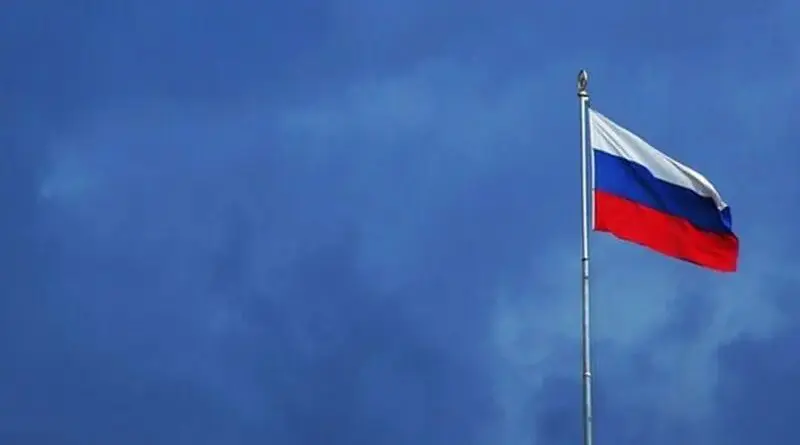Russians Need to Question Their Foreign Policy – OpEd
Open, public discussion on Russian official foreign policy has been rarely seen in Russian history, due largely to the common perception that the government correctly understands all Russian state interests.
In the Soviet period, foreign policy rarely came into the public spotlight. So was it under the Romanov dynasty, albeit with much more freedom and flexibility (and there were cases when public discussions were in fact instigated by the authorities). Overall though, public discussion was under much scrutiny and control from the imperial and Soviet authorities. This does not mean big debates were not taking place within Russian government, however- debates questioning the existing foreign policy initiatives, the country’s overall strategic trajectory and its position in the Eurasian landmass.
In the years before Napoleon invaded Russia in 1812, Russian Tsar Alexander I was criticised for his policies towards the French Emperor, leading to fears that one day he might be ousted. In the Soviet epoch, Nikita Khrushchev’s downfall was largely caused by unpredictable behavior on the world stage. And the list goes on, with plenty of examples how the Russians internally debated and reconsidered the country’s foreign policy, while on the surface all was static as if no change was forthcoming.
The Russian public today is prevented from questioning Vladimir Putin’s foreign policy over the past 19 years. This does not mean that the Russians do not write about Russia’s foreign affairs, but it seems that the dose of questioning and possible reconsideration in those discussions is slim.
Yet, there are plenty of reasons why the current Russian foreign policy should be questioned. Over the 19 years of Putin’s rule, the Russian influence has seen major setbacks. In 2014, when the Euromaidan took place and Russia grabbed Crimea and supported separatists in Donbass, Kiev became unequivocally pro-western in its foreign policy course. In the same year, Moldova, Ukraine, and Georgia all signed EU association agreements and stepped up military cooperation with NATO members and other western states.
Moscow has also experienced problems with breakaway territories across the former Soviet space. Russia once used the conflicts in Abkhazia, South Ossetia, and Transnistria to curtail the ability of the countries those regions were in to enter the EU and/or NATO, but Moscow is having more and more difficulty maneuvering in so many diverse conflicts. Various actors are trying to play their own games, at times independently of Moscow, while anti-Russian sentiment will always be present among local populations. Geography also complicates Moscow’s ability to act decisively. For instance, the Transnistria region, where it has approximately 1,500 troops as peacekeepers, was essentially cut off from Russia once Ukraine closed transit routes through its territory.
To make matters worse, Russian foreign policy setbacks are not limited to the western borderlands or the South Caucasus. Russian influence in the strategically important Central Asia region is also receding. It is true that Moscow remains a predominant military power with military bases in Tajikistan (although China too its own base there) and Kyrgyzstan, but on the economic front, China has strengthened its positions.
There are even unpleasant developments on the cultural level. As the number of Russian speakers decreases around the world, Kazakhstan recently rid itself of the Cyrillic alphabet and replaced it with the Latin one.
On a broader geopolitical level, Russia is feeling pressure from the US and the EU. It is unlikely that the sanctions imposed on Russia will be lifted any time soon.
This gives plenty of reasons why Russia’s basic foreign policy assumptions should be reconsidered. The Russian foreign policy is probably still too Eurocentric, and there are now signs that Moscow is becoming Asia-centric. Indeed, Russia should neither position itself as leaning towards Europe nor to the economically vibrant Asia-Pacific region. The Russians should in fact be cooperating equally with all the economic centers across Eurasia.
Russia’s geographic position is unique if one considers how many world economic centers it borders on: EU, the Middle East and China, Japan, etc. This potentially allows Moscow to become an economic powerhouse of its own. True, Ukraine and the rest of the former Soviet space are important to the country, but it is also true that Moscow spends too many resources on unnecessary separatist conflicts and the ‘prospective’ NATO onslaught.
The Russians should also question the most difficult notion: the pursuit of imperial grandeur. However trivial that might sound, the concept of turning Russia into a superpower (derzhava in Russian) should not be a primary goal of any successive government. There should be a clear understanding that a perennial Russian quest for military modernization sucks up most of the revenues and other resources. Instead, the Russians should develop a clear strategy, even grand strategy, based on the fact that first powerful economic incentives should be given to internal economic activity.
This would allow the Russians to be competitive and return to the Eurasian arena as a major global power. No isolation from the outside world is necessary to develop internally; on the contrary, cooperation with Europeans and Americans should not be stopped. However, Russia should take time to rethink its position on the global stage. It should leave what seems impossible to do for many in nowadays Russia (battle for Ukraine, Georgia, etc.) to perhaps return to the same lands as a different, economically and technologically vibrant power in a couple of decades or so.
This article was published by Georgia Today

